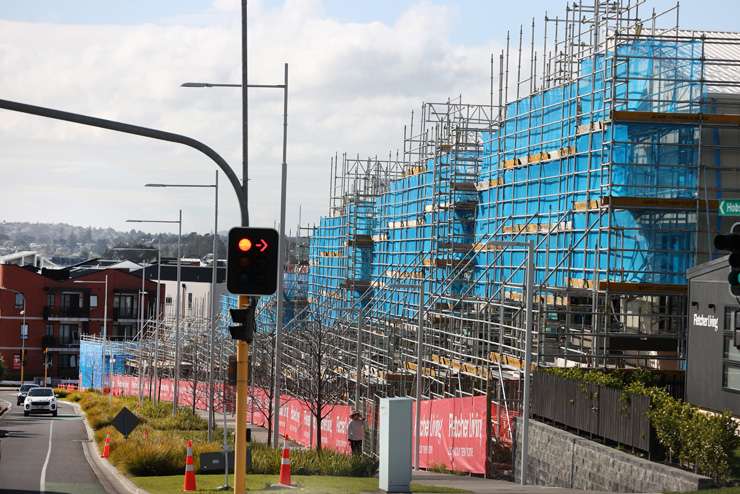The country’s largest bank is hiking the deposit required for new builds in a move financial advisers say is another blow for struggling first home buyers.
From May 16, ANZ will require a 15% deposit on new home builds, up from the 10% deposit currently required.
An ANZ said spokesperson told OneRoof the latest changes to the loan-to-value ratio rules for construction lending were aimed at making sure customers were not over-exposed if they experienced significant cost overruns and needed to borrow additional funds to complete their project.
The changes were being driven by the cost inflation for building materials and the wage cost pressures impacting the construction industry, the spokesperson said.
Start your property search
According to the New Zealand Institute of Quantity surveyors, the price of some building materials has over the past 12 months increased by up to 30%, with supply chain delays also having an impact on costs.
ANZ’s new criteria will apply to any applications currently in the pipeline that have not been approved by May 16. Any pre-approvals signed off before May 16 will be honoured.
ANZ has also increased the cost overrun allowance for fixed price contracts from 10% to 15%.
EasyStreet mortgage adviser Gareth Veale told OneRoof this would make it much harder for first home buyers – who often had smaller deposits - to get their foot on the ladder.
He has clients who have committed to builds that were more than three or six months out and could fall outside the period of an ANZ approval.
“They go to renew and the deposit requirements have gone up,” he said
Veale was also waiting on three applications to be processed and if they are not approved by Monday then he said there was no possibility of a loan through ANZ.

New homes under construction in Auckland. Photo / Fiona Goodall
“You are having to go to another lender and scramble to get finance,” he said.
ANZ is the biggest bank in the country and offers a lower 2.7% floating interest rate on new builds – half its usual rate, Veale said. But now a lot of first home buyers with smaller deposits wouldn’t be able to take advantage of it.
So far ANZ is the only bank to announce these changes, but Veale expects others to follow given it has 44% of the market share.
Financial Advice NZ chief executive Katrina Shanks said if the proposal was correct then it is yet another restriction on the average New Zealander looking to obtain credit for their first home mortgage.
“It's just getting tougher and tougher for first home owners to get their first home.”
Shanks said people who currently had pre-approvals for a first home build with a 10% deposit but didn’t end up buying before their pre-approval expired would have to resubmit to the bank for another loan and find a further 5% for the deposit.
“I think it is really disappointing for first home owners who can afford first homes.”
Another mortgage broker, who did not want to be named, told OneRoof they were given just one business day notice of the changes.
“You kind of can’t blame them too much for it. 90% today could be close to 100% in 11-months-time.”
A Reserve Bank of New Zealand spokesman said all lending by individual banks was subject to their own internal lending guidelines.
The RBNZ did not have any specific requirements around lending for new builds, but new builds were exempt from its loan-to-value ratio (LVR) restrictions.















































































